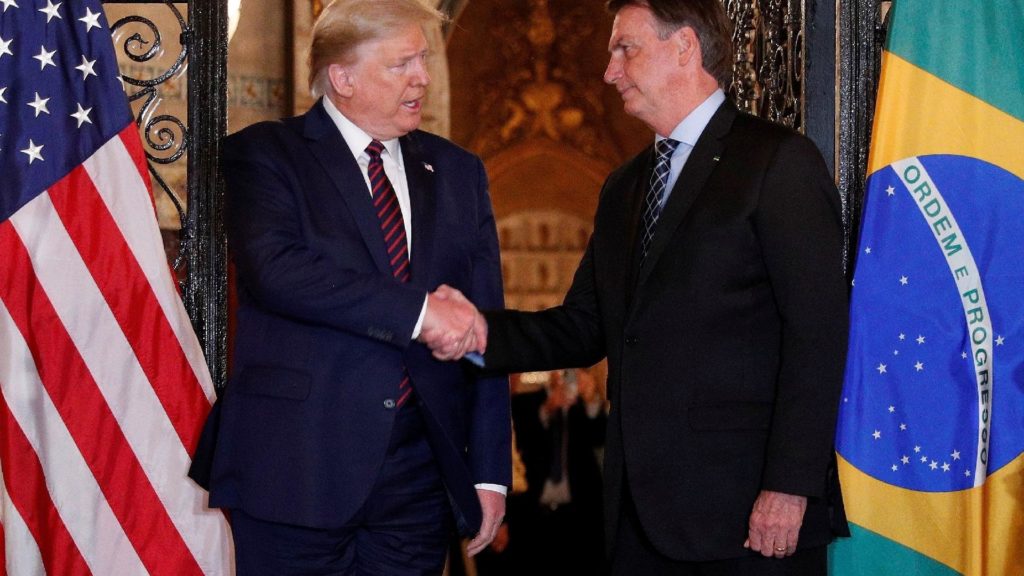RIO DE JANEIRO, BRAZIL – Last Tuesday, Brazil signed with the United States a declaration to the World Trade Organization (WTO) with covert criticism of China’s performance in international trade, further signaling the alignment of the Bolsonaro government with the Trump administration and indicating that the country may take sides in the trade dispute that has dragged on since last year between the world’s two largest economies.

With the growth of China’s weight in Brazilian foreign trade, this is everything the government should not do, say analysts.
In the joint declaration, Brazil and the US argued that the principle of market economy must apply to all WTO members in order to ensure fair conditions of economic competition in international trade. For both countries, the current rules of the organization would not serve China, which has an economy strongly marked by state intervention.
“Brazil gains nothing from this. Our tradition is more multilateral,” said Lia Valls, a researcher at the Brazilian Institute of Economics (IBRE) at the Getúlio Vargas Foundation (FGV). She recalls that the Sino-Brazilian relationship splits the government, with the Itamaraty’s bellicose tone frequently offset by the Ministry of Agriculture’s pragmatism. “The government has to attend to the interests of several groups, you can’t just dwell on the ideological issue,” said the researcher.
For the president of the Foreign Trade Association of Brazil (AEB), José Augusto de Castro, one of the challenges of direct alignment with the US is that in the international trade arena, Brazilians and Americans are also competitors. And the two largest agricultural powers on the planet both have China as their main market.
Before the joint declaration with the US, government officials had already made several attacks on China, which led agribusiness representatives to call for a change in position, given the concern of potential retaliation by the Chinese authorities.
The ex-Minister of Education Abraham Weintraub, for one, insinuated that the Chinese had benefited from the coronavirus crisis and posted images of the cartoon character ‘Cebolinha’ on the Great Wall of China, exchanging the ‘L’ for the ‘R’, in a reference to the alleged Chinese speaking. He later deleted the post.
In reaction, the Chinese Embassy in Brazil replied that the posts were “utterly absurd and despicable, with a strongly racist slant and unspeakable goals, having caused negative impacts on the healthy development of bilateral relations with China.”
Damage
The rounds of agreements to interrupt the trade dispute between China and the US – which were not effectively implemented – included quotas of US soy sales to the Chinese. In other words, Brazilian agribusiness could lose out in the short term should the trade dispute come to an end.
For Castro, Brazil should draw closer to the Americans, but with no formal alliances. “The Americans are practical and preserve their direct interests. For them, ‘business is business,'” he said.
This distancing coincides with the increased dependence on Brazilian exports to China, mainly basic products. Domestic industry is still suffering from high input costs, poor infrastructure, and a high tax burden, which makes Brazil’s industrialized products too expensive to export. The AEB projects that the export of manufactured products will total US$56.3 billion this year, 27.3 percent less than in 2019 – a figure similar to that recorded in 2004.
The Planalto Palace has appointed the Itamaraty as its spokesperson, which has not commented on the matter. Likewise, the Ministry of Agriculture was asked about the potential consequences of the Brazilian government’s stance on the sector but failed to reply.
Source: Estadão Conteúdo

